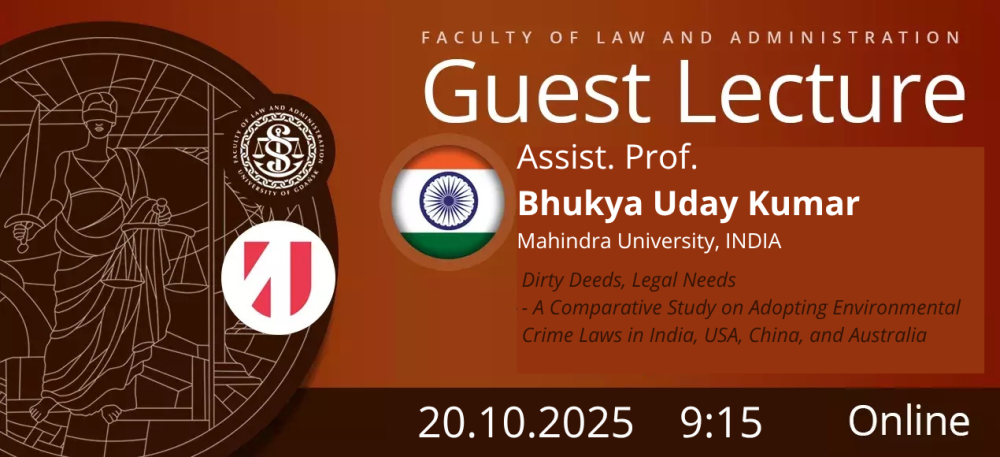Guest Lecture by Assist. Prof. Bhukya Uday Kumar (Mahindra University, India)

The Faculty of Law and Administration, University of Gdańsk, is pleased to invite you to a Guest Lecture by Assist. Prof. Bhukya Uday Kumar from Mahindra University, India.
📅 Date: Monday, October 20, 2025
⏰ Time: 9:15 – 11:00 CET
💻 Format: Online
Join us for a lecture titled “Dirty Deeds, Legal Needs – A Comparative Study on Adopting Environmental Crime Laws in India, the USA, China, and Australia”, which will explore how different jurisdictions address the pressing issue of environmental crime through their legal frameworks.
The lecture will analyze the structure of laws, enforcement efficiency, and judicial involvement in combating environmental offences. While the USA and Australia have long-established systems with robust enforcement and clear penalties, India and China continue to develop their frameworks through policy reform, improved monitoring, and public engagement.
The comparative perspective highlights that the effectiveness of environmental law depends not only on the existence of regulations but also on their implementation and the cooperation between state institutions and citizens.
How to Participate:
If you wish to attend, please contact us at siapl@ug.edu.pl to receive the event link.
We warmly welcome all members and friends of our Faculty community to take part in this engaging and globally relevant session!
About the Speaker
Assist. Prof. Bhukya Uday Kumar is a faculty member at the School of Law, Mahindra University, India. His research and teaching interests include environmental law, comparative legal studies, and public policy.
He has contributed to numerous academic discussions on environmental protection and sustainable development, emphasizing comparative approaches to legal reform and the global dimensions of ecological justice.
Assist. Prof. Kumar’s work bridges theory and practice, highlighting how effective legal mechanisms can support sustainability goals and promote responsible governance in both national and international contexts.




